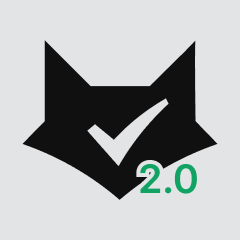Product Introduction
- TestSprite 2.0 is an advanced coding agent support platform designed to enhance the reliability and functionality of AI-generated code through automated analysis, validation, testing, and error correction. It integrates the proprietary Modular Code Processor (MCP) to streamline development workflows and ensure code aligns with project specifications.
- The core value of TestSprite 2.0 lies in its ability to reduce manual intervention in code validation, accelerate deployment cycles, and minimize errors in AI-generated outputs, ensuring developers receive production-ready code that meets functional and security standards.
Main Features
- The Modular Code Processor (MCP) dynamically parses project specifications, identifies inconsistencies in AI-generated code, and generates actionable insights to align code with user requirements.
- Automated test suites execute unit, integration, and regression tests on AI-generated code, flagging runtime errors, security vulnerabilities, and performance bottlenecks in real time.
- AI-powered fix suggestions provide line-by-line remediation for flagged issues, including code optimization tips, dependency updates, and compatibility adjustments for cross-platform deployment.
Problems Solved
- TestSprite 2.0 addresses the unreliability of AI-generated code, which often fails to meet functional requirements or introduces security risks due to incomplete context understanding.
- The product targets developers, QA engineers, and DevOps teams who rely on AI coding agents (e.g., GitHub Copilot, GPT-4) but require a safeguard to ensure output quality.
- Typical scenarios include validating code snippets from AI agents during sprint development, automating post-generation testing in CI/CD pipelines, and debugging complex outputs from low-code/no-code platforms.
Unique Advantages
- Unlike static code analyzers, TestSprite 2.0 combines specification validation with runtime testing, enabling it to catch logic errors that traditional linters miss.
- The MCP’s machine learning layer adapts to project-specific coding standards, ensuring fixes align with organizational practices rather than generic templates.
- Competitive differentiation includes native integration with popular AI coding agents, pre-configured compliance templates for GDPR/HIPAA, and a 40% faster error resolution rate compared to manual debugging.
Frequently Asked Questions (FAQ)
- How does TestSprite 2.0 integrate with existing AI coding tools? TestSprite 2.0 operates as a middleware layer, plugging into APIs of tools like GitHub Copilot or OpenAI Codex to intercept and validate code before it reaches the developer’s workspace.
- Can it handle complex specifications for enterprise-level projects? The MCP supports multi-file analysis, dependency mapping, and cross-module validation, making it scalable for microservices architectures and monorepo environments.
- What programming languages and frameworks does TestSprite 2.0 support? It currently covers Python, JavaScript, Java, and C#, with frameworks including React, Django, Spring Boot, and .NET, with quarterly updates adding new language support based on user demand.
